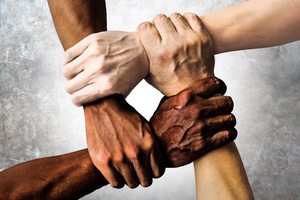Every person, regardless of their race, occupation and more, is protected in the United States by certain rights called individual rights. However, just because these rights exist does not mean that they are always followed. It is possible for someone-whether an organization, a single person or something else-to infringe upon a person’s individual rights. In order to understand whether that has happened to you, you first need to understand more about your rights and how they apply to both you and those around you.
What Are Individual Rights?

Individual rights are closely tied with civil and human rights. The only difference is that individual rights are protected and set in law by the U.S. Constitution, as well as federal laws set by Congress. Individual rights typically protect individuals from discrimination, exploitation and other forms of injustice.
To think about it simply, individual rights-just like human rights-essentially encompass human dignity; what this means is that every individual has the right to defend themselves, to express themselves freely, to be free and liberated and more.
What Constitutes as a Case of Individual Rights Violation

Based on the definition of individual rights, it is no wonder that many legal cases arguing against a violation of these rights include some sort of infringement upon human dignity. However, individual rights violation cases are a bit more complex than just this concept. Not every case of injustice or unfair event is an individual rights violation, and there are even scenarios in which a person’s normally defended rights are temporarily legally abridged.
Instead, for there to be a violation of individual rights, the individual must experience an injury or some sort of loss. Moreover, the event itself must involve an already existing law. For example, imagine that you attempt to practice your religion in your home, but your local government tells you that you must practice a different religion instead. This is a violation of your First Amendment right to the freedom of religion, and you may have the legal grounds for a case.
Types of Individual Rights Violations
There are many types of individual rights violations, which can manifest in the form of both injuries and damage to some less tangible aspect of one’s lifestyle or wellbeing, for example:

- Outward or physical harm done by local law enforcement or police, usually as a result of misconduct or police brutality
- Loss of possessions or property as a result of a search or forced capture in a way that is not in accordance with the law, such as officers searching without a warrant
- Loss or termination of a career or employment for practicing a constitutionally protected right
- Hostile, intentional or unethical administration of pain on prisoners
- Benefits relating to an individual’s general welfare (such as healthcare and financial necessities) being cut off or impeded
- A suspension for a long period of time or an expulsion of a student as a result of a violation of due process
- Hostile, harmful, unequal, discriminatory or unjust actions or treatment against an individual or organization based their status-which ranges from disability to sexual orientation, gender, age, race, color, ethnicity and so on.
These are all protected categories for which a person cannot have actions taken against them solely on that basis.
Of course, there may be other signs aside from the ones listed above, but these are the most common manifestations of individual rights violations. If you or someone you know may be a victim of an individual rights violation, you have legal recourse to pursue compensation for any damages or injuries, physical or otherwise, that you may have experienced as a result.
How to File an Individual Rights Violation Lawsuit
If you wish to file a lawsuit for a suspected violation of individual rights, an attorney who focuses primarily on defending a person’s rights is a good place to start. Due to the private nature of many individual rights violations cases, attorneys in this field can help you to craft a personalized case.
Trust a Professional Legal Team to Help You Defend Your Individual Rights
Understanding whether your individual rights have been violated can be difficult to discern, especially when not all grievances can be considered direct rights violations. The good news is that the attorneys at The Brown Firm can help you to understand what steps to take next in your case, including potentially filing a lawsuit to recover damages, if applicable. Reach out to learn more or to schedule a consultation to discuss the details of the event and begin the legal process.

